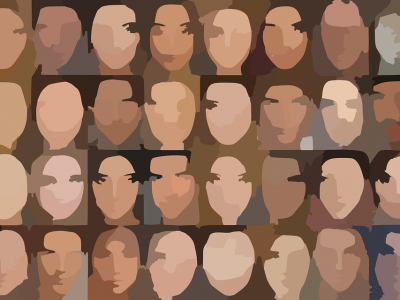
Twitter user @KhaledSawa shares a photo of his neighbor's house in Gaza burning after being shelled on November 15, 2012.
This report was researched, written, and edited by Weiping Li, Renata Avila, Chan Myae Khine, Alex Laverty, Sarah Myers, and Rebecca MacKinnon.
The role of the Internet in the recent fighting in Gaza has been a subject of controversy and debate among members of the Internet freedom community. This week, we bring you some highlights of this discussion:
- An article in the Verge overviews the #PillarOfDefense campaign by the Israeli Defense Force (IDF), which has made the Internet another front in the conflict over Gaza.
- Global Voices’ Jillian C. York provides a historical overview of the role of social media in the conflict over Gaza since 2008, as well as Israel’s efforts to mobilize public opinion online.
- Forbes discusses the Anonymous cyberattacks against the IDF under the hashtag #OpIsrael
- A Wired article notes that YouTube refused to take down a video showing the assassination of a Hamas leader despite a website ban on “graphic or gratuitous violence.”
- Similarly, a piece in the Atlantic questions whether the Twitter exchanges between Israeli Defense Forces and Hamas violated Twitter’s terms of service, which limit postings that contain threats of violence.
- On GigaOm, Mathew Ingram discusses how technology companies negotiate the issue of where free speech ends and violence begins.
The clash has highlighted the tensions companies face between freedom of speech and violence, how the Internet has a battleground for public opinion, and the role of the public in negotiating conflict. Global Voices, Global Voices Advocacy, and the Netizen Report will continue to provide updates on these issues as the fighting continues.
Censorship
In response to thousands of complaints with screenshots submitted by the public via zapret-info.gov.ru, the Russian government has blacklisted more than 180 sites for “offensive” content. As Global Voices’ Runet Echo project reported last week, the Russian wiki style encyclopedia for contemporary culture, folklore, and subcultures called Lurkmore has also been placed on the blacklist.
Google took down a blog run by the Portugese group Precários Inflexíveis during a general strike in Portugal. According to the group, the takedown was due to allegations of defamation in connection with their efforts to improve worker conditions.
After the UAE was elected to sit on the United Nations Human Rights Council, it set a stricter policy on censoring online political activism, allowing authorities to sentence web activists for offenses such as calling for protests or mocking the country’s rulers.
Thuggery
A former Chinese media worker named Zhai Xiaobing, also known as @stariver on Twitter, has been detained since November 7 for tweeting a joke about the Chinese Communist Party’s 18th National Congress. The police claim Zhai was “involved in spreading false and terrible information” online. Chinese netizens have initiated a campaign urging the police to release Zhai.
An Indian woman was arrested by Mumbai police after posting a critical comment on Facebook about the city's official shutdown to mourn the death of an extremist Hindu politician. The woman was accused of “hurting religious sentiments,” and a friend who pressed Facebook’s “like” button under the message was also arrested. Both have been released on bail. An online movement has emerged in support of their free speech rights, condemning the Hindu party Shiv Sena whose members had pushed for their arrests.
Police from Fukui Prefecture in Japan raided the home of Yuzuru Kaneko, a video blogger who has documented anti-nuclear protests in Japan, seeking evidence that might support charges against another anti-nuclear activist. Kaneko’s supporters have launched a campaign demanding the police return Kaneko’s personal property. Police have since notified Kaneko that they will do so.
Surveillance
The Chinese government has reportedly asked private companies in China, including joint ventures with American corporations, to install equipment to monitor Internet traffic and block websites.
Chinese dissident Hu Jia claims that China's Public Security Bureau has surveilled his communications through WeChat, a mobile voice and text instant message application developed by the Chinese Internet and phone value-added services company Tencent. Hu said the Public Security Bureau interrogated his friends about the content of their communication one hour after they ended the conversation.
Privacy
The Cloud Readiness Index 2012, released by Asia’s Cloud Computing Association (ACCA), ranked Japan number one among 14 Asian countries in data privacy, followed by Korea, Hong Kong, Singapore and Taiwan.
The affair between the former head of US Central Intelligence Agency David Petraeus and his biographer Paula Broadwell has alerted Americans of the power of law enforcement to access personal e-mail. See more analysis on privacy and surveillance issues related to this case at the ACLU's blog and Ars Technica.
Twenty six organizations and individuals have sent an open letter to Marissa Mayer, the CEO of Yahoo, urging the company to use HTTPS (Hypertext Transfer Protocol Secure), a communications protocol for online secure communication, in Yahoo’s online services such as e-mails. Facebook recently announced it will roll out HTTPS as its default connection option to users in North America.
National Policy
David Cameron may push ISPs to tighten their web filtration policy to block access to pornography, especially by children, by unveiling tough new controls on the material.
Myanmar has drafted a new communications bill that could prohibit the use of social media and unregistered devices. The bill, which has not been passed by parliament, could pose a threat to social media users with its vague definitions of such terms as “electronic apparatus.”
Copyright
US Representative Zoe Lofgren (D-California) is using Reddit as a platform to crowdsource legislation that would make it more difficult for authorities to seize domains facilitating copyright infringement.
Sovereigns of Cyberspace
Google has threatened to sue a young man in South Africa because he has set up an employment website with the domain name Doogle.co.za. Google warned that the domain name could make others believe the two websites collaborate.
In a speech at the University of Michigan, Twitter’s CEO Dick Costolo discussed his views about the Chinese market. He said he hopes the new Chinese leaders will lift censorship constraints and let Twitter in. However, he also stressed that the company “will never compromise the way Twitter operates,” and that they also have no plans to operate in Iran.
Internet Governance
According to leaked documents from upcoming World Conference on International Communications (WCIT) organized by the United Nations’ International Telecommuncations Union (ITU), Russia has called on the UN to take greater control of Internet governance by transferring power of organizations like ICANN to an inter-governmental body under UN authority. The proposal declared that member states should have the sovereign right to manage the Internet within their national territory. Criticism of WCIT by civil society and human rights activists is growing: Groups from 55 countries who have signed an international ‘unity statement’ representing concern over threats to the exercise of human rights online.
The European Parliament has addressed the issue of credit card companies’ ability to refuse service, in response to the unilateral cutoff of donations to Wikileaks by Visa, MasterCard and Paypal.
Cybersecurity
A security hole was discovered in Skype that would allow anyone to change your password and thus take over your account. After being posted in a Russian forum and confirmed by The Next Web, Skype overhauled its password reset process to fix the issue.
Netizen Activism
Slovenia’s Pirate Party has officially become a registered political party since November 5. The Party is going to focus on the new proposal of an Electronic Communications law and a new copyright law proposal in the near future.
Cool Things
Research company Informa Telecoms & Media expects mobile data investments in Africa to reach $18.5 billion in revenue by 2016, making up around 22% of mobile revenue for the continent.
Publications and Studies
- Privacy Considerations of Online Behavioural Tracking, European Network and Information Security Agency
- Some Perspectives on Cybersecurity 2012, The Internet Society
Subscribe to the Netizen Report by email
For upcoming events related to the future of citizen rights in the digital age, see the Global Voices Events Calendar.




9 comments